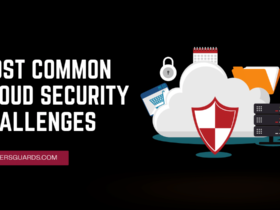Why is Getting Hacked Harmful: Imagine waking up one fine morning, getting your morning coffee, and opening your laptop to find something weird going on with your WordPress website. You’re surprised to hear that you can’t log into your site because Google has blacklisted it, stopping people from visiting it, or that your Google Adwords account has been suspended. My good friend, your account has been compromised.
Getting hacked is never fun, and it’s just the beginning of a long and arduous process. After you’ve been hacked, you’re likely to experience a domino effect, in which a series of bad things happen one after another, or all at once (if you are unlucky). Repairing a hacked website is also a time-consuming and costly operation. Our purpose with this post is simple: we’ll tell you about the negative consequences of having your website hacked.
Following a hack, the following things will happen to your website:
Your Site Could be Defaced
There are a lot of explanations why a WordPress account is compromised. To advance their own interests, some hackers like to deface your site by posting a political message across the page. Hacktivists are the term for these types of hackers. They inject a piece of information that they want the guests to see after breaking into the web.
Consider the case of Anonymous hackers defacing the Comelec (Commission on Elections) website in the Philippines in 2016. Another time, ISIS websites were defaced with illegal advertisements for performance-enhancing drugs by hacktivists. Despite the fact that these are large websites, hacktivists have been known to target smaller sites in the past because small sites are less concerned with security and therefore easier to hack. Hackers recently took control of a web-hosting server and defaced hundreds of websites, many of which belonged to small businesses.
The intruder may be storing hundreds of thousands of files on your website server, including pirated videos, music, shareware, and illegal documents, among other items. Furthermore, they run some of these files on your computer, increasing server use and affecting your website. The pages on your web take a long time to load for visitors. According to studies, the average human attention period has shortened from 12 to 8 seconds in this digital age. As a result, sluggish websites are detrimental to industry.
A visitor may encounter the ‘Error 500′ when attempting to open a page on your web. When your site’s server is overwhelmed, this error will appear. Visitors who arrive at the error page instantly click the back button, resulting in a drop in traffic.
You Site May Crash
A WordPress site usually crashes when the site developer attempts to change the site or when the site administrator attempts to add a new plugin or theme (which is why we recommend testing with a staging site first). However, if you open your site one day and see the message “Page Not Found (404 error)” without taking any action, it’s a warning that your site has been hacked.
The hacker had to have done something, made changes to the website, and caused it to crash. A hacker usually tries to avoid being detected, but a blunder has exposed him. You must clean up your site as soon as possible now that you know it has been hacked. And the longer your website is down, the greater the impact on traffic and sales.
The White Screen of Death
The White Screen of Death (WSOD) is an error that causes your website to show a blank page with no details. There are parallels to be drawn with Windows’ blue screen of death, which causes the computer to stop working. Your blog will stop working if you get the White Screen of Death, and it may also prevent administrators from accessing the WordPress dashboard.
When your site’s memory is drained, the White Screen of Death can appear. This may occur if hackers store a large number of files on your server. Even unlimited hosting plans have a limit, which most website owners are unaware of.
Pages Being Redirected to Other Sites
Many hackers want to hack websites in order to make fast money. They inject malicious code, such as the wp-feed.php malware, which redirects a page or a message to a spammy website. They extract confidential information such as credit card numbers, usernames, and passwords by relying on the reputation of your website. It’s known as phishing, and it’s one of the most popular forms of online fraud.
Hackers who have obtained access to your site change your server’s htaccess file to redirect traffic away from your site to another site. As a consequence, you’re not just losing traffic, but you’re also unintentionally helping fraudulent activity.
Sucuri recently discovered an example of this form of malware attack. A slew of malicious code was slapped onto the header.php file of a website’s active theme. Visitors were routed to the following malicious websites:
- test246(dot)com
- test0(dot)com
- distinctfestive(dot)com
- ableoccassion(dot)com
Weird Popup May Appear
Unexpected pop-ups can appear without your knowledge on your website. The aim of the pop-ups is to use your traffic to sell or promote a hacker’s or their client’s product. Pop-ups are irritating, and after being bombarded with them, some of your visitors will never return to your site. And that’s not even the most shocking part. Some malicious pop-ups collect data from your browser’s cookies or map your browsing habits without your permission. Hackers can use these methods to gather information in order to carry out a malicious act. Furthermore, clicking through any of these pop-ups or even attempting to close them could result in the visitor’s computer device being infected with malware. If the malware is mounted, a hacker may cause havoc on the machine of the visitor.
Information Could be Leaked Online
Data has a high importance in today’s digital world. Many hackers break into websites in order to steal confidential information that they can then market to potential clients. It doesn’t have to be financial information to be sensitive information on your website; it may be something exclusive to your domain. Each website contains information that is unique to that domain, making the data valuable.
Hackers could be looking for everything from photos to contact details and medical records. This knowledge can be used for a variety of tasks, including:
- It could be used by hackers to demand ransom money. Uber charged an unspecified sum to hackers in return for the deletion of stolen information on 57 million citizens.
- They can post sensitive information on the internet. Consider the Panama Papers leak, in which hackers hacked FBI and CIA websites and stole officers’ personal information before releasing it on the internet.
- They might sell it to people who are interested in purchasing data, among other items.
Your Brand Reputation Takes a Hit
The importance of a brand’s online identity to its development cannot be overstated. Defacing websites or endorsing illicit drugs have a negative impact on brand image. We previously discussed how hacktivists deface websites with political messages in order to advance their own agendas. Politics is a thorny terrain that must be navigated with caution. People who disagree with the message can be triggered by messages on your web.
In other people’s websites, pharmaceutical firms continue to market and endorse illicit drugs. You can lose traffic as a result of such obnoxious promotions.
Web Hosts Will Suspend Your Account
Sending spam emails and targeting other websites are two examples of malicious activities that hackers might engage in when using someone else’s site. Using a single IP address to target websites increases the likelihood of being found. As a result, hackers are constantly on the lookout for a website that they can use to launch attacks on their targets. In addition, some hackers use compromised websites to send spam emails. Hackers search for a new IP address with a clean record since common email servers keep track of the IP addresses sending out emails.
Your account will be terminated if your web host finds that your website is being used to perform spammy activities. Shared hosting services are particularly vigilant about compromised sites because if one site becomes infected, other websites on the same shared server are at risk of being infected as well.
Google Will Blacklist Your Site
Google wants to make sure that its users have a secure online experience. It achieves this by blacklisting a vast number of compromised websites every day. If Google blacklists your domain, it will affect your SEO and traffic, as well as your revenue collection. When tourists come to your site after it has been blacklisted, they will see a red page warning them about the site they are trying to access and asking them to return to safety (i.e go back to the previous page).
Being hacked is one of the worst things that can happen to a website owner. It has an effect on the site’s ranking, organic traffic, reputation, and overall online identity.
It takes years to create a reputation, but just a few hours to destroy one. That is why it is important to take website security seriously.
Keeping your site up to date, using security plugins to search and harden your site’s security, and taking daily backups can all help you from having your site hacked. Take care now, before a tragedy hits.














Leave a Reply